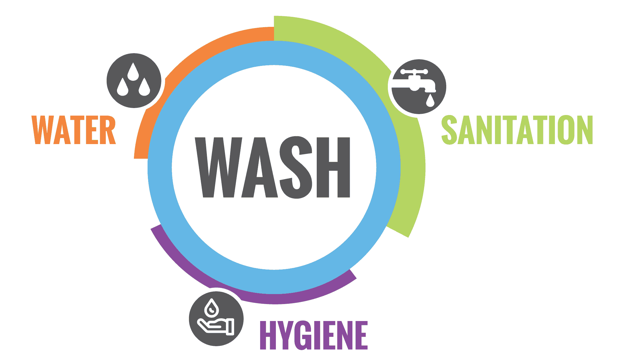WHO calls on all nations to radically accelerate action to make water, sanitation and hygiene (WASH) a reality for all.
The World Health Organization (WHO) and the United Nations Children’s Fund (UNICEF) call on all nations to drastically accelerate action to make water, sanitation, and hygiene (WASH) a reality for everyone as the historic United Nations Water Conference gets underway today. This is the first such conference in nearly 50 years.
The statistics are shocking: almost half of the world’s population—3.6 billion people—use sanitation systems that do not process human waste, and 2 billion people lack access to clean drinking water. Millions of children and families lack access to sufficient WASH services, such as soap for hand washing. The results are frequently fatal.
At least 1.4 million people every year, many of them children, pass away from preventable diseases associated with contaminated water and subpar sanitation. For instance, cholera is currently spreading in nations where there haven’t been epidemics in decades.
In half of all healthcare institutions, where good hygiene habits are most important, there is no access to water, soap, or alcohol-based hand sanitizer. Inadequate water and sanitation services have disastrous social and financial effects. Without these vital services, people get sick, kids lose out on learning opportunities, especially girls, and communities may be uprooted due to water shortages.
The advantages of having access to clean water and sanitation, for both persons and societies, are immeasurable. These services are essential for a child’s healthy growth and for maintaining wellbeing in adults. Through promoting community health and productivity, they moreover provide a route to more generalized social and economic advancement.
Taking steps from solutions
We all have a right to clean water, good sanitation, and good hygiene, but many people lack these things. For everyone to have access to securely managed WASH services by 2030, global progress must at least treble from its current rates. To safeguard people’s health and prospects, progress must be made even more quickly in unstable environments and the world’s poorest nations.
Thankfully, we have workable solutions and a unique chance to put them into practice.
With assistance from UN agencies, international partners, the commercial sector, and civil society organizations, we implore governments to take the following actions:
Governmental change to drive leadership
Create a strategy for boosting political commitment to responsibly managed drinking water, sanitation, and hygiene, which includes engaging with civil society organizations and reaching out to leaders at all levels of government;
Create a plan for enhancing the institutions and governance needed to provide these services, such as by establishing independent regulatory organizations that uphold health-based norms and frequently disseminate findings.
Financing and funding:
Create specific policy goals to direct funding and finance choices for WASH;
Create costed funding and financing plans that consider the requirements of various geographic areas and population groups;
To acknowledge the importance of WASH as a public good, increase public investment on it;
Encourage service providers to perform better in order to delight customers and recoup expenses, for instance by lowering service disruptions and water losses and enhancing tariff designs and collection efficiency.
Invest in organizations and people:
Create a strategy for creating a workforce with more capabilities in the WASH sector that is stronger, more diversified, and more gender-balanced; create strong institutions and a motivated workforce; and
By providing workers with capacity development opportunities, particularly in small and rural systems, you can aid the development of professionalized service delivery.
Information and proof for making decisions:
Encourage the formalization of data monitoring and gathering within national systems;
Consistently apply data collecting and monitoring procedures, and openly share and use the data that is gathered to guide decision-making.
Promote WASH experimentation and innovation:
Promote collaboration between the government, civil society organizations, and business sector actors to develop and implement novel solutions. Establish supporting government policies and laws that foster WASH innovation and experimentation.
Water, sanitation, and hygiene investments and proactive action can change lives. There is the key that will enable universal access to WASH; all that is left is for us to take it.




